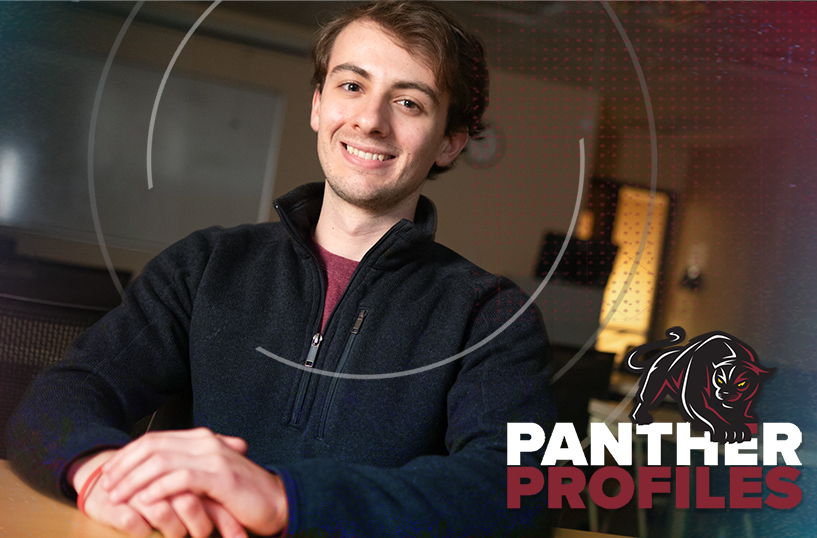
Panther Profiles are Q&A interviews that highlight Panthers of all stripes – students, faculty, staff, alumni, board members and anyone else in the campus community.
John W. (“Will”) Correira will graduate in May with a bachelor of science degree in public health. He arrived at ACPHS expecting to become a pharmacist but changed majors after getting involved in research on vaccine mandates – just as the advent of the COVID-19 pandemic increased the topic’s importance. He discovered he loved research and public health. Last fall, he was invited to give an oral presentation at the American Public Health Association national conference in Boston on research he conducted with ACPHS faculty, and to speak with conference attendees on the subject of childhood vaccine mandates.
What was your plan when you enrolled at ACPHS?
I came to ACPHS as a freshman in the pharmacy program. My dad's a pharmacist, so I thought that was the field that I wanted to work in.
And then I took Introduction to Public Health my freshman year, and I realized that this is something that I was interested in.
Now, fast forward to almost graduating. I've switched to the Public Health program. I'm super involved in research on campus. I have coauthored a paper and hopefully have a few more on the way and have completely switched gears.
Was there a particular experience that convinced you to switch majors?
I took Introduction to Public Health in Spring 2020. I started doing research, looking at vaccine-preventable diseases and vaccine mandates. That coincided with the start of the COVID-19 pandemic, and that gave me that final push to ultimately switch to public health.
What did you like about researching vaccines?
I always knew that I wanted to go into health care in some capacity and to make a difference in my community. In public health, we're working at the population level – you’re able to impact so many people. With vaccines, they're such an important public health intervention, and they make such a huge difference in our communities.
But there's also a lot of misinformation around vaccines, a lot of vaccine hesitancy, and that's only increased during COVID. It was interesting to get involved in something that was so important in our communities and was actively unfolding in front of me.
Some of the things we were finding in our research related to vaccine hesitancy and why people might not want to get vaccinated or have their children vaccinated. We were also seeing that unfold in the news. It was really interesting to actually look at predictors of COVID-19 vaccine uptake and to see in the news that politics can really play a large role and to then also see it in our research.
Was there a highlight for you of working on this research?
I had the opportunity to present on the findings and implications of our systematic review at the American Public Health Association national conference in Boston in November. I was able to give an oral presentation about what we found and receive questions from the audience and have a great discussion about the importance of vaccines and also some of the challenges.
We found there's such a spectrum of beliefs ranging from people that fully accept vaccines all the way to those who are fully opposed and will not budge at all. By targeting the fence sitters – the people that are in the middle and undecided about vaccines – we believe we may be able to sway their opinion in favor of getting vaccinated.
Was the goal of your research to convince people to be vaccinated?
The goal of our research is to create a resource for policymakers and other stakeholders to reference when they're deciding whether vaccine mandates should be implemented.
About the effect of studying public health during the COVID-19 pandemic: Is there something about that experience you will bring with you as you embark on your career?
I've learned a lot about misinformation and how important it is to make sure that the facts are communicated transparently. I think that's going to inform my future work.
Why was ACPHS a good place for you to study public health?
When I came to ACPHS, I was immediately struck by the connections that students have with the faculty here. And that's been exactly my experience as a student in the Public Health program. I have a great relationship with (Assistant Professor) Dr. (Margaret) Doll, who's my research mentor. That's how the Public Health program operates, and that's been phenomenal for me as a student.

